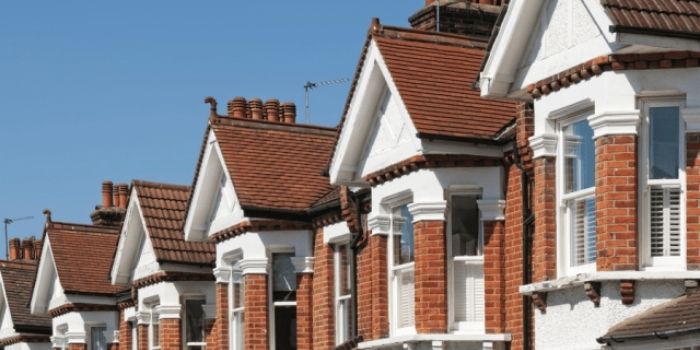Things to Consider When Deciding Between Flat or House
May 30th, 2021
Flat or House, That is The Question

When researching what type of property to buy, there are many factors to consider, but the biggest of all is deciding on whether you want a flat or house. It’s important to weigh up all the options to help you find your dream home, and there’s a lot to consider.
So, in this blog post, I hope to help you.
Maintenance
Choosing between a house or a flat is a big decision, with lots to consider before you make the move. When it comes to maintenance, apartments lead the way with reliability and convenience. From water to electricity issues, living in a flat means these will all be taken care of by the building’s own team.
While you will have to pay an additional annual service charge, this will give you the luxury of living in a building that is well-maintained — something you won’t get when you buy your own house.
Leasehold vs freehold
Flats are much more likely to be leasehold properties. That means you own the property, but not the land on which it stands, for a fixed term. Once the lease runs out, you will be asked to pay to renew it. These arrangements usually mean that you have less freedom and control over certain aspects of the property. You will often be unable to make changes to the structure of a leasehold property.
With a freehold property, you own the property and grounds outright, subject to your mortgage payments. This means you have more flexibility and autonomy over things such as building extensions and making structural changes.
Ability to sell on
This home may not be your last, in which case you may want to consider the resale value. How has the price changed from buyer to buyer and is it likely to be a property which will sell easily, should you wish to move on after a while?
Location
Across the UK, the average cost of a terraced house is £208,311, but if you exclude Greater London, that drops to £184,529. For a flat, you can expect to pay an average of £232,135 across the UK, or £166,286, excluding Greater London.
Of course, both property types are found at their lowest average prices in the North. The South East offers a terraced house for an average of £285,566, while the average flat in the same area is more than £70,000 cheaper, at £214,214.
While moving to the other side of England is not ideal, it may be worth checking other areas to see whether you can find the right property for you, at the right price, elsewhere.
Lifestyle
The amount of time spent in any home will depend on your lifestyle, but if you are a homebody who is looking for a property you can grown into, then you may be better off choosing a house. This is due to the ability to make changes, build extensions and adapt the property to suit your needs. A flat will not offer these opportunities.
However, you may know that the property you buy now will not be your ‘forever home’ and a flat may be perfectly suited to your needs before you start a family. It may also be the springboard you need to get onto the property ladder and work your way up to your dream home.
You may envision different stages of your life happening in different settings. If you imagine yourself settling down with your partner and raising a family in a house, it may be an idea to buy one from the start. However, if you feel strongly enough that a flat is your dream accommodation, there’s no point buying a home that you are not going to enjoy living in.
Additional costs
There’s more to buying a house than paying a deposit and monthly mortgage repayments. All homes will have additional costs, including bills and council tax, but some charges will depend on the property type. Different property types come with a range of extra costs, and if you are still struggling to choose between a house or a flat, those charges could be the deciding factor. These costs include service charges, ground rent and maintenance costs.
If you are buying a flat, it is likely that your property will be situated in a building with others. This building will probably be managed by an individual or company, to whom you will need to pay a service charge and ground rent. This will cover the maintenance and upkeep of the common areas of the building, such as stairs, hallways, lobbies and grounds. It is also likely that repairs and structural upkeep will be a part of this.
While maintenance costs are often included in leasehold tenancies, those with freehold ownership are certainly not exempt. However, you will be responsible for organising and paying for any work that needs to be carried out yourself.
It’s also worth factoring in what kind of local amenities you like to frequent, such as bars, restaurants, cinemas and theatres, and necessities you need nearby, such as a supermarket, schools, Post Office, doctors etc. If you’re after a slower pace of life, a house in a leafy countryside town may better suit your needs.


